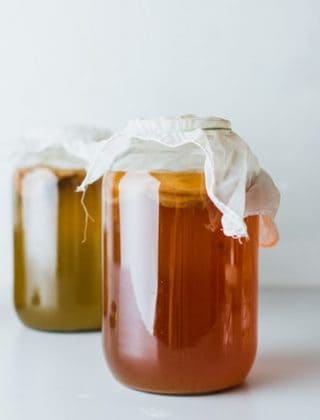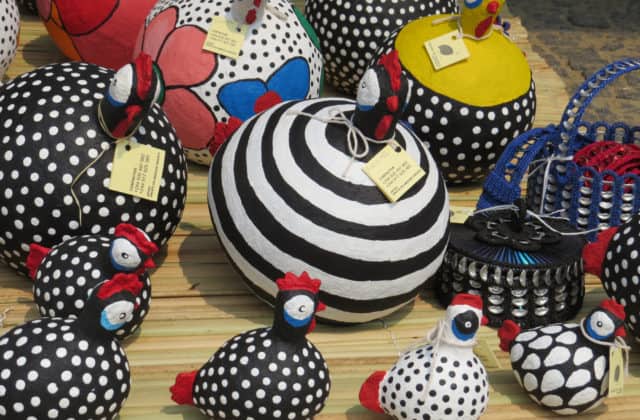“Anyone (medical professional or otherwise) who tells you that diet does not affect your health or ability to fight disease is a liar. Period. Diet is everything. What you choose to put in your mouth may mean the difference between life and death. So much of our poor gut health is linked to what we eat and drink.”
Prof. Keith Scott-Mumby (2016) Gut flora and Cancer
Historically, probiotics and homemade ferments have been around for thousands of years and people used to consume them through fresh food coming directly from the earth and from fermented food. Ferments were one of the most used preservation methods.
Probiotics, active microorganisms (in most cases, bacteria), are defined as food which is rich in good bacteria, that resemble bacteria that are already present in our intestinal flora.
In fact, probiotics have been present in our body ever since we were born. Through the vaginal canal during labor, the baby is exposed to its mother’s bacteria for the first time. This triggers a series of reactions in the baby’s gastrointestinal tract including the production of beneficial bacteria.

When we think of bacteria, we usually think of bad bacteria, however, probiotic bacteria help our body function fully.
There are 2 types of bacteria in our intestine: the beneficial bacteria and the pathogenic bacteria. Both are necessary for the functioning of our intestine, however, in order to be in good health, it is fundamental that good bacteria are always superior to the bad ones. This ratio should be 85% for good bacteria and 15% for bad bacteria. This balance is essential for our intestinal flora to function well and for us to feel good.
And why?
(Beneficial bacteria are responsible for producing vitamin B12, vitamin B and butyric acid; keeping away pathogenic microbes that cause inflammation; creating enzymes that destroy toxic bacteria; and stimulating the secretion of cells that support the immune system (70 to 80% of our immune system is located in the digestive system)
Probiotics act as the main barrier to the elimination of pathogenic microorganisms that may be lodged due to the consumption of certain food and the lifestyle.
Probiotics are extremely beneficial food by reducing inflammation, promoting digestion, maintaining beautiful skin and enhancing immunity.
But is it that simple?
It can be. However, it is noteworthy that probiotics are not miracle food. In fact, in order for us to get all these benefits, we must follow healthy eating and living habits.
In order for probiotics to survive in our organism and give us the best they have, we must also feed them, and feed them the best way possible.

Probiotics, being living microorganisms, need to be fed by high nutritional value food, such as fresh and organic vegetables and fruits, full of vitamins, minerals and especially fiber. These are the so-called ‘prebiotics’, which as the name implies, is what should be consumed before probiotics. This food – fruits, vegetables, whole grains, oats, wheat, bananas, barley, onions, tomatoes, garlic, asparagus, legumes, chia, etc. – Food rich in fiber, not being digestible by the gastric juices, will arrive intact to the intestines and there will be decomposed by the good bacteria.
Having the concern of having a diet rich in prebiotics is crucial to prevent diseases such as cancer, obesity, osteoporosis, inflammatory and intestinal diseases, among others. These feed the intestinal cells and avoid infections derived from the pathogenic bacteria.
This means that probiotics and prebiotics always go hand in hand and it is no use consuming probiotic food if we do not include a balanced diet in our routine. This symbiosis can improve not only our physical well-being but also our emotional well-being.
Can probiotics interact with prebiotics to influence the mind?
Yes No doubt. We speak of the gut as the second brain since both are closely intertwined. Our intestine is made up of over 100 million neurons and 95% of the serotonin is produced there. It is not a thinking organ, it is not able to write poetry or to do calculations. But many studies consider that it has the ability to influence our state of mind. It is this network of neurons present in our microbiota that causes the feeling of butterflies in the stomach or cold in the belly in response to psychological sensations of stress or anxiety.
In addition to intestinal bacteria assisting in the digestion and fight against viruses and toxins, they also have the ability to communicate with neurotransmitters, and thus influence how we feel.

How can we rejuvenate our intestinal flora?
For our microbial community to be revitalized and protected we must adopt certain habits of life in our routine:
1- Reduce the consumption of antibiotics.
2- Consume prebiotics.
3- Avoid the consumption of sugar.
4- Have a varied diet.
5- Consume probiotics and fermented food.
6- Getting dirty (literally) and breathing fresh air.
7- Spreading love and affection.
John Cryan (2017) Feed you microbes“You are what you eat and you are what your microbes eat”
Teresa Santos – dregree in Holistic Nutrition (from the Institute of Traditional Medicine in Lisbon) and Nutrition and Lifestyle Coaching (from the Institute of Health Sciences, Dublin)
View this post on Instagram







